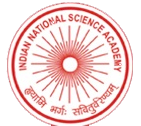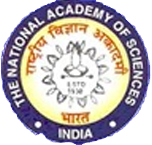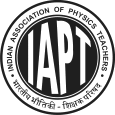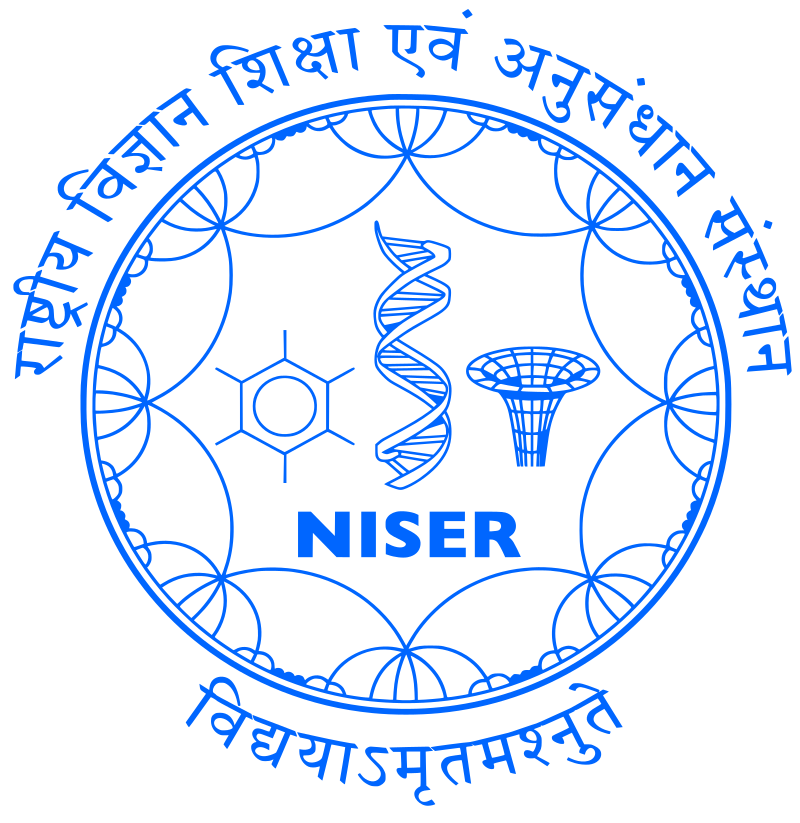ICWIP2023
8th International Conference on Women in Physics
Online Mode
10-14 July 2023




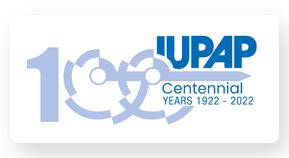
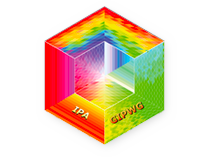
Workshops
Workshop 1: Physics Education (W1)
Organizers: Tetyana Antimirova, Gillian Butcher, Ruwen Peng, Manjula Sharma, Pratibha Jolly
Workshop description: In the Physics Education Workshop we will be focussing on two different themes in the two sessions. The first focuses on the higher education institutions and how to transform them for gender equity. Initiatives such as Project Juno in the UK, SAGE in Australia and GATI in India, all aim to encourage institutes to assess themselves in terms of gender equity. The self-reflection allows the institutes to ascertain their own gaps and weaknesses and hence to come up with their own action plans to address those issues. How effective have these initiatives been, how have they evolved and how can they be transferred to other systems and countries?
The second theme will look at curriculum, technology (both teaching of and utilising for teaching) and effective pedagogy. Each of these strands is important on its own but we will consider the overlap of the three strands and how they can be combined to improve gender equity in the classroom and how they can attract girls into physics. What is the research telling us, what good practice can we share and what can we improve further?
A variety of speakers will help set the scene for each theme, with plenty of time for workshop attendees to discuss the issues, share experiences and good practice and develop strategies to move the gender equity agenda forward in education.
Workshop 2: Social Science Data Analysis for Physicists (W2)
Organizers: Apriel Hodari, Deepa Chari
Workshop description: ICWIP 2023 provides opportunities to understand the worldwide physics communities that contribute to shaping and driving the agenda of physics. Sharing of empirical as well as anecdotal data on the status of physics is common on this platform, while participants' expertise using social science data analysis methodologies varies widely. This workshop will offer participants opportunities to practice and learn social science approaches for data collection, analysis, and discussion. The hands-on examples cover a wide spectrum of data including physics learning materials/resources, lived-experiences within physics contexts, departmental gender statistics, to big data on diversity representation. The workshop leaders will demonstrate applying social science data analysis methods in physics and will facilitate discussions. Participants will explore social science data analysis examples in small groups. The workshop concludes by distilling emergent recommendations to IUPAP WG5 and the General Assembly, about synergizing physics with social science to understand physics communities in context.
Workshop 3: Interrogating Physics Practice with an Intersectionality Lens (W3)
Organisers: Prajval Shastri & Shohini Ghose
Additional Resource person: Chayanika Shah
The goal of the workshop is to build our understanding of how intersectionality plays out in our physics practice, in order to design interventions and formulate policy prescriptions that will transform the physics enterprise into a welcoming one for everyone. The workshop will be conducted across two interactive sessions of 2 hours each. The sessions will cover understanding gender as a marginalisation, and understanding discrimination and intersectionality, which are essential to address the root causes of gender inequity in physics. We will then explore pathways at multiple levels, viz., classroom, departmental, institutional, organisational, and also for funding agencies and leadership, in order to transform our enterprise for the better. The workshop will culminate in collective reflections on what was learnt, in order to arrive at recommendations for the physics profession via IUPAP and also for the IUPAP Women in Physics Working Group 5 moving forward.
The workshop will have a maximum of 30 participants.
It is important to note the following:
- Two-session Attendance: The two sessions of the workshop will be sequential and process-based. Therefore commitment to the whole workshop is necessary in order for the participation to be meaningful. By signing up for the workshop, you are committing to participate in BOTH sessions of the workshop.
- Computer vs. Phone Access: Participants will have the best experience of the workshop by connecting via a computer. If phone is the only way to connect for any participants, we will make instructions available that will ease the process as much as possible.
- Dynamic Participation: This workshop involves active participation and learning by sharing. The discussions will be based on a few short videos and materials that will be shared before hand with the participants. It is extremely important that participants watch these videos beforehand and be prepared with their questions for discussion in the workshop.
- Confidentiality: By signing up for the workshop you are committing to keeping all the conversations in the workshop completely confidential. This means that participants are free to use the information received in the workshop, but neither the identity, nor affiliation, nor any background markers (such as nationality, gender, race, sexuality, gender expression, caste, language accent etc.) of any of the organisers, resource persons or participants may be revealed in any way after and outside of the workshop.
- No Recording: The workshop sessions will not be recorded nor live-streamed, and participants shall also not record any part of the workshop sessions.
- No Sharing Beyond Workshop Confines: Participants are required not to propagate happenings of the workshop on social media, either during or after the workshops.
Workshop 4: Women’s Leadership in Physics (W4)
Organizers: Anisa Qamar, Anitha Kurup, Meza-Montes Lilia
Workshop description: Despite the progress made by women globally during the past decades, they constitute a minuscule number in top management and leadership roles. Countries worldwide have made concerted efforts to increase the number of women in the STEM disciplines. While the numbers have increased in the student pipeline, this is not translated to the faculty and decision-making roles either in academia or the industry. This pattern is not very different for women in Physics.
For sustainable development, women’s empowerment through equal participation is one of the strategic challenges. Although the number of women graduating from universities with higher degrees is increasing daily, they are still grossly underrepresented in STEM education [1]. Several barriers like gender disparities in employment at the entry-level, and career progression in academia and industries have prevented women from pursuing research-oriented careers. Worldwide, women are underrepresented in first and last authorship, and in multiple authorship, women represent less than one-third of the authors in publications [2]. Out of the total 934 Nobel Laureates, 58 are women which makes only 1.85 % while the Fields medalists in mathematics, just one out of 60 is a woman. Interestingly, Nobel female laureates in literature make up 13.68 % [3].
In developing countries, the gender disparity in STEM is complex and multi-faceted. Eventually, lower female scientists’ representation in STEM fields interprets in fewer role models for girls and limited mentoring opportunities [4]. Studies on the number of females in top positions in academic institutions suggest that unintentional and subconscious gender bias is common and can result in barriers for women to being promoted, credited for their achievements, nominated for leadership positions, or viewed as leaders [5]. In this workshop, female leaders in the physics community will share their experiences with the aim to encourage early- and mid-career women for future leadership.
-
References:
- A.M. Penner, Gender inequality in science, Social Science, 6219, 347 (2015)
- V. Lariviere et al., Bibliometrics: Global gender disparities in science. Nature, 7479, 504 (2013)
- N. Caplar, S. Tacchella and S. Birrer, Quantitative evaluation of gender bias in astronomical publications from citation counts, arXiv:1610.08984v1 (2016)
- F. Zakham and K. Jaton, Supporting female scientists in Yemen, The Lancet, 393, 526 (2019)
- K. E. Hamilton, M. P. Tétreault and P.K. Lund. Opportunities and challenges for women PhD investigators in gastrointestinal research, Gastroenterology, 145(2), 266 (2013)
Workshop 5: The role of women in science for development (W5)
Organizers: Amal Amin, Farida Fassi, David Hutchinson
Workshop description: The role of women in science is crucial for the development of society. Historically, women have made significant contributions to scientific advancements, although their achievements have often been overlooked or undervalued. However, recognizing and supporting the role of women in science is essential for achieving sustainable development. Empowering women in science is not only a matter of gender equality but also a strategic investment for societal progress and sustainable development. By ensuring women's full and equal participation, we can harness their talents, insights, and capabilities to address complex challenges and build a better future for all.
The workshop will address the following questions: Is there a critical role that women can play in science for development and how can we ensure that the development for which we strive is a just and equitable one? The workshop will begin with short key-note presentations from Professor Amal Amin, of the National Research Centre in Egypt, and Dr Nitsara Karoonuthaisiri, of the National Centre for Genetic Engineering and Biotechnology in Thailand outlining their experience in science for development. We will then explore together our experiences and then attempt to synthesize key recommendations for the IUPAP General Assembly.
For details on Physics for Development, please visit https://iupap.org/strategic-plan/physics-for-development/

